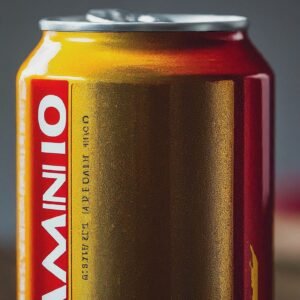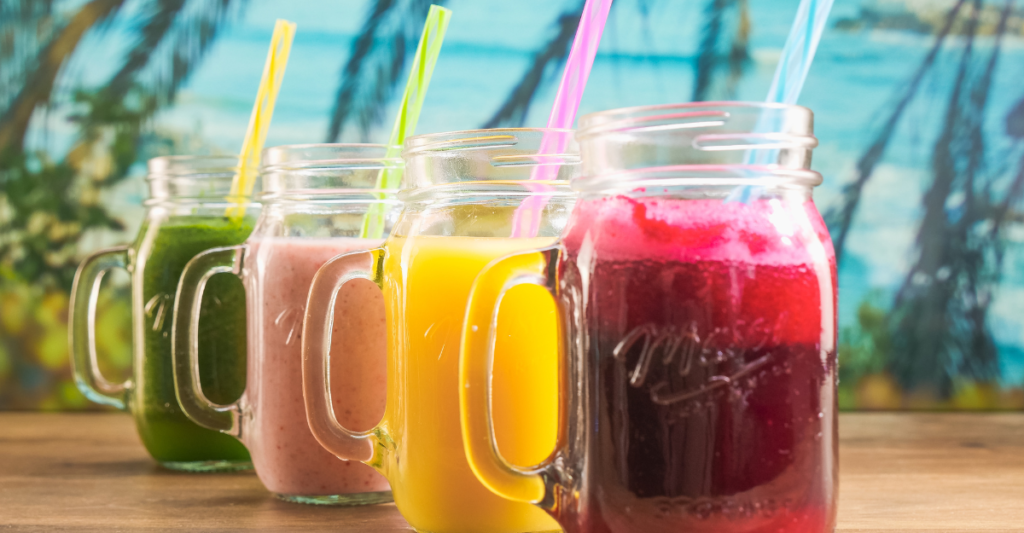In today’s fast-paced world, staying energized is crucial. Many turn to energy drinks or supplements like Amino Energy to keep going. But how do these two options compare?
In this article, we’ll explore the differences between Amino Energy and traditional energy drinks, focusing on their ingredients, benefits, side effects, and suitability for different users. Let’s dive in and see which one might be the better choice for you.
What is Amino Energy?

Amino Energy is a dietary supplement designed to boost energy and enhance workout performance. Its key ingredients include branched-chain amino acids (BCAAs), caffeine, and artificial sweeteners like sucralose.
BCAAs help reduce muscle soreness and fatigue, aiding in faster recovery post-workout. Caffeine provides the energy boost, while sucralose adds sweetness without extra calories. Amino Energy is often used as a pre-workout supplement or for an energy boost during the day.
What are Traditional Energy Drinks?
Traditional energy drinks, such as Red Bull, Monster, and Rockstar, are beverages designed to increase alertness and provide a quick energy boost. They typically contain high levels of caffeine, taurine, sugars, and vitamins.
These ingredients work together to enhance physical and mental performance. However, the high sugar content can lead to a quick spike in energy followed by a crash. These drinks are popular among students, athletes, and professionals looking for a quick pick-me-up.
Also explore: Red bull vs Sting Which is better
Nutritional Comparison

Here are the nutritional content of amino energy drinks vs traditional energy drinks.
Caloric Content
- Amino Energy: Low in calories, with minimal sugar.
- Traditional Energy Drinks: Often high in calories due to sugar content. For instance, an 8-ounce serving of Red Bull contains about 110 calories and 27 grams of sugar.
Sugar and Sweeteners
- Amino Energy: Uses artificial sweeteners like sucralose, which provide sweetness without added calories.
- Traditional Energy Drinks: Contain significant amounts of sugar, which can contribute to energy spikes and crashes.
Other Additives
- Amino Energy: Includes artificial colorants and additives such as Red 40 and citric acid, which have potential health concerns.
- Traditional Energy Drinks: Often contain taurine, B vitamins, and other additives aimed at boosting energy and performance.
Also explore the Red Bull vs Coffee drinks
Health Benefits
Here are the health benefits of amino energy drinks and other energy drinks.
Amino Energy
- Muscle Recovery: BCAAs help reduce muscle soreness and aid in recovery.
- Reduced Fatigue: The combination of BCAAs and caffeine can help reduce fatigue during workouts.
Energy Drinks
- Increased Alertness: The high caffeine content provides a quick boost in energy and alertness.
- Short-Term Performance: Beneficial for short-term tasks that require focus and energy.
Potential Health Risks
Here are the health risks of these energy drinks.
Amino Energy
- Artificial Sweeteners: Contains sucralose, which may cause digestive issues and other health concerns if consumed in large amounts.
- Colorants and Additives: Ingredients like Red 40 have been linked to health issues such as hyperactivity and potential carcinogenic effects.
Also explore the Red Bull Vs Monster Energy drinks
Energy Drinks
- High Sugar Content: Can contribute to obesity, diabetes, and other metabolic disorders.
- Caffeine Overload: High levels of caffeine can lead to increased heart rate, anxiety, and sleep disturbances.
Suitability for Different Users
Athletes and Fitness Enthusiasts
- Amino Energy: Preferred for its muscle recovery benefits and lower calorie content.
- Energy Drinks: Can provide a quick energy boost but may not be ideal for sustained performance due to sugar crashes.
General Consumers
- Amino Energy: Suitable for those looking for an energy boost without the sugar crash.
- Energy Drinks: Popular for quick energy but may not be suitable for teenagers, pregnant women, or those with pre-existing health conditions due to high sugar and caffeine content.
User Reviews and Testimonials
Amino Energy
- Positive Reviews: Users praise its effectiveness in enhancing workout performance and recovery.
- Negative Reviews: Some report digestive discomfort due to artificial sweeteners.
Energy Drinks
- Positive Reviews: Many enjoy the immediate energy boost and improved focus.
- Negative Reviews: Concerns about the high sugar content and subsequent energy crashes.
Alternatives and Healthy Options
For those seeking natural energy alternatives, options like coffee, green tea, black tea, coconut water, and kombucha are excellent choices. These beverages provide natural caffeine and other beneficial compounds without the excessive sugar found in many energy drinks. Additionally, maintaining a balanced diet, staying hydrated, getting sufficient sleep, and exercising regularly can naturally boost energy levels and overall well-being.
Also explore: Best Healthy Substitute for Energy Drinks
Conclusion
Both Amino Energy and traditional energy drinks have their pros and cons. Amino Energy is beneficial for athletes and those looking for a low-calorie, muscle-recovery boost. Traditional energy drinks offer a quick energy surge but come with the downside of high sugar content and potential crashes.
Ultimately, the choice depends on your individual needs and health considerations. Always consider the ingredients and potential health effects when choosing an energy supplement.
FAQs
Is Amino Energy safe for diabetics?
While Amino Energy doesn’t contain sugar, it includes artificial sweeteners like sucralose, which may not be ideal for long-term consumption by diabetics.
Can teenagers use Amino Energy?
It’s generally recommended that teenagers avoid energy supplements like Amino Energy due to the high caffeine content and potential health risks.
Are there healthier alternatives to energy drinks?
Yes, natural alternatives like coffee, green tea, and coconut water provide energy boosts without the added sugars and artificial ingredients found in many energy drinks.

